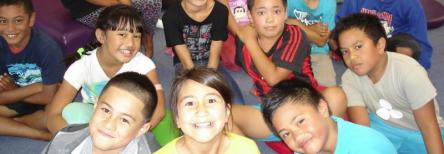6. The importance of language, identity and culture

Underpinning the search for solutions to improve student achievement at the school are considerations of language, culture and identity. Teachers know that a child’s culture and language is central to the learning relationship and policy documents affirm this belief.
Mangere Central School is a real-life example of Ka Hikitia and the Pasifika Education Plan and the philosophies they espouse.
Children walk on Mangere maunga where many of their ancestors walked. They honour their tipuna who have passed, and they think too of the legacy they will leave for future generations of learners. The school carvings show the school journey from past to present to future. This community knows “our Māori achieve success as Māori.”
They say that tino rangatiratanga is a living concept in the school and they have the evidence to back this claim. The community is authentically engaged - not simply ‘consulted’ - so that families self-determine the direction of their children’s education. This includes robust dialogue with families who have historically been bussed from the local Ihumatao Marae. Three-way student-led conferences have been long-established linking child, parent and teacher in the process of learning relationships.
Reflective question
- How do key strategies for priority students come alive in your school?
- Ka Hikitia – Ka Hāpaitia | The Māori Education Strategy – are your Māori students achieving as Māori?
- Action Plan for Pacific Education 2020–2030 – are your students from the Pacific present, engaged and achieving?
